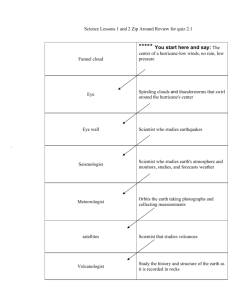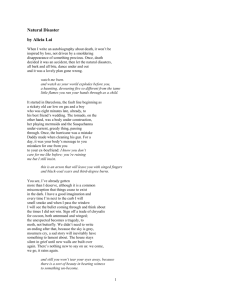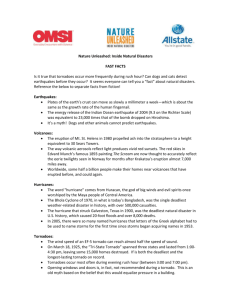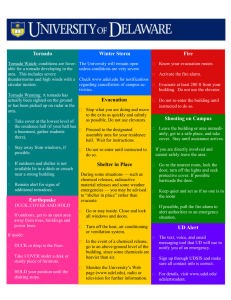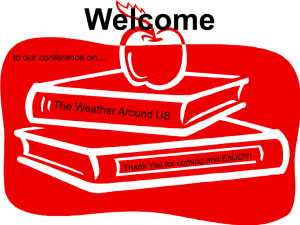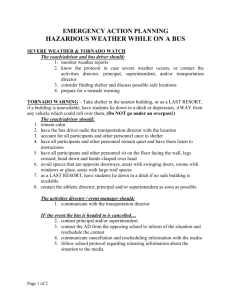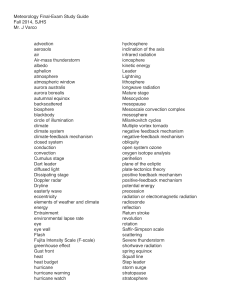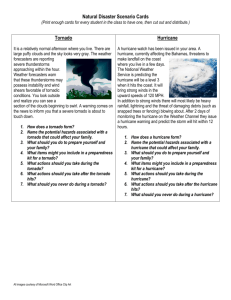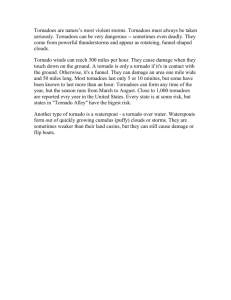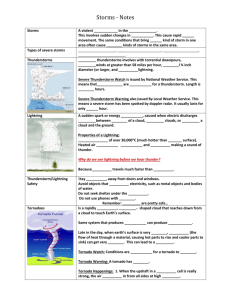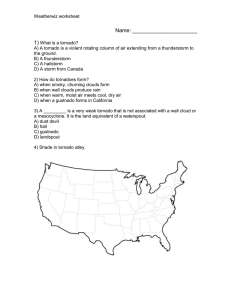Weather Emergency Safety Tips
advertisement
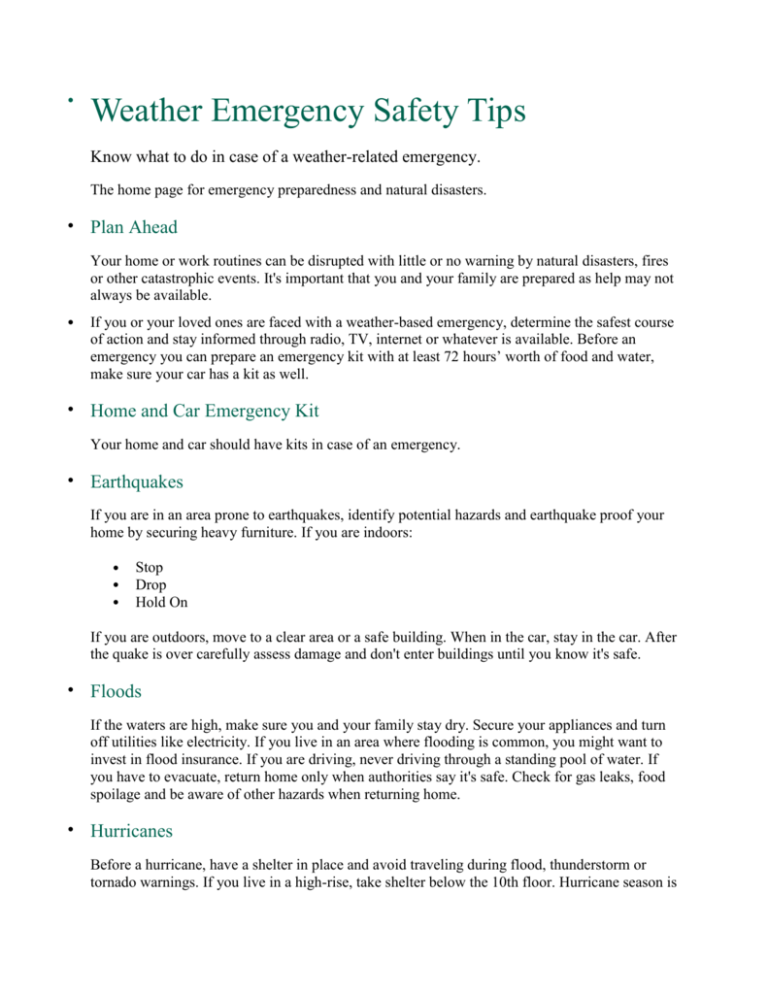
Weather Emergency Safety Tips Know what to do in case of a weather-related emergency. The home page for emergency preparedness and natural disasters. Plan Ahead Your home or work routines can be disrupted with little or no warning by natural disasters, fires or other catastrophic events. It's important that you and your family are prepared as help may not always be available. If you or your loved ones are faced with a weather-based emergency, determine the safest course of action and stay informed through radio, TV, internet or whatever is available. Before an emergency you can prepare an emergency kit with at least 72 hours’ worth of food and water, make sure your car has a kit as well. Home and Car Emergency Kit Your home and car should have kits in case of an emergency. Earthquakes If you are in an area prone to earthquakes, identify potential hazards and earthquake proof your home by securing heavy furniture. If you are indoors: Stop Drop Hold On If you are outdoors, move to a clear area or a safe building. When in the car, stay in the car. After the quake is over carefully assess damage and don't enter buildings until you know it's safe. Floods If the waters are high, make sure you and your family stay dry. Secure your appliances and turn off utilities like electricity. If you live in an area where flooding is common, you might want to invest in flood insurance. If you are driving, never driving through a standing pool of water. If you have to evacuate, return home only when authorities say it's safe. Check for gas leaks, food spoilage and be aware of other hazards when returning home. Hurricanes Before a hurricane, have a shelter in place and avoid traveling during flood, thunderstorm or tornado warnings. If you live in a high-rise, take shelter below the 10th floor. Hurricane season is June-November. If you are in an area at risk for hurricanes secure your property and consider investing in flood insurance. During a hurricane, evacuate when told to do so or if you are unable to evacuate go to an interior room and lie low. After a hurricane, assess the damage and be careful of post-emergency hazards like flooding, knocked-down electrical wires and fire. Tornadoes Tornado season is March-June and there have been tornadoes reported in 48 continental states. Before a tornado hits practice emergency plans and have a shelter in place. Avoid traveling during thunderstorm, flood or tornado warnings. If a tornado does hit, lie low in an interior room at a low level such as a basement or a bathroom. If you're driving, drive at a right angle to the tornado's path and if you're outside lie in a ditch or a flat, low area. After the tornado passes, let others know you're ok, stay tuned for storm watches and warnings.
